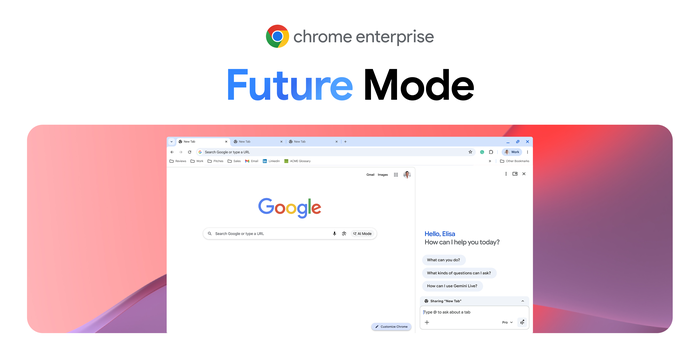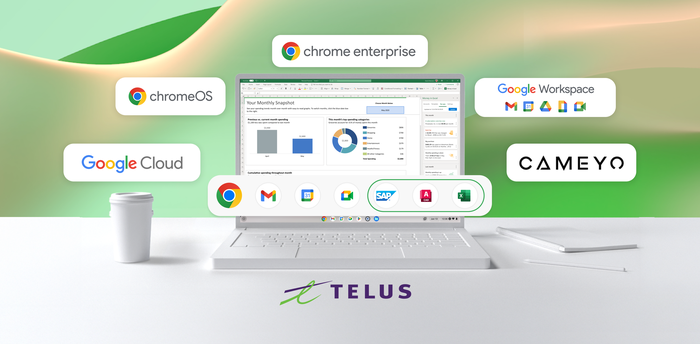Devoted Health employees don’t miss a beat serving seniors from home with Chrome OS

David Gallant
Head of Enterprise Support and Technology for Devoted Health
Editor’s note: Today’s post is by David Gallant, Head of Enterprise Support and Technology for Devoted Health, a Medicare Advantage health plan on a mission to improve healthcare for seniors. Devoted Health is using Chrome OS and Pixelbooks—in combination with workplace tools like Google Workspace, Slack, Talkdesk, and systems built internally—to help members navigate the Medicare system even as employees work remotely.
When Devoted Health was founded in 2017, we created a business continuity plan that focused on keeping the lights on through blizzards, power outages, and whatever else Boston's infamous winters might throw at us. Like many businesses, we never imagined something as sweeping (or lengthy) as a pandemic would prevent us from going to the office. But thanks to our decision to go Google-first from the company’s first day, we were better prepared than we thought.
Unlike most healthcare companies, we’ve always operated in the cloud. When we had to shift to at-home work in March, our key concern was making sure we could get our members—seniors who were most at-risk for COVID-19—the care they needed to navigate the pandemic. With 600 Pixelbooks equipped with Chrome OS for the many employees—from top executives to information workers and call-center Member Service Guides—the transition from office to remote work was a very easy change. Even better, our members are getting the same care we’ve always provided.
Devoted Health chose Google from the get go. Google Workspace is our standard for workplace productivity tools, and we use Google Cloud Identity, along with YubiKeys for two-factor authentication. Chrome OS and Google Workspace keep private information safe in the tools we use every day, like Gmail and Google Drive. Chrome OS suits our way of working with a wide variety of productivity partners, like Slack and Talkdesk.
Transitioning to remote work is not something that health insurance companies are equipped to do easily, given their dependence on on-premise hardware and VPNs. But because we’d built Devoted Health on cloud-hosted solutions that can be accessed from anywhere there’s internet, we knew sending people home with Pixelbooks would keep the business up and running. We use Zoom on our Pixelbooks for our large all-hands meetings, and we never have to worry about Devoted Health employees staying connected with each other.
As soon as the nation went on lockdown, we were able to purchase and warehouse laptops to align with Devoted Health’s planned 2020 hiring model. We then configured and shipped the devices to employees, along with monitors, headsets, and accessories. Fortunately, Chrome OS is familiar to most of our employees: Our engineering, design, human resources, and operations departments use Chrome Browser even if they don’t have Pixelbooks.
Perhaps the most important piece of the remote-work puzzle was ensuring that our Member Service Guides, who answer calls from our members, could still respond to phone calls. Chrome OS runs a contact center app called Talkdesk, which routes calls to the Member Service Guide team. As an IT person, it was a bit scary to push out the Pixelbooks, monitors, and USB headsets and hope that this crucial function worked as well as it did within the office. But sure enough, with Gmail, Google Meet, and Slack, Member Service Guides can talk to Devoted Health members, and the operations teams can talk to Member Service Guides.
Over the months of working remotely, we were able to hire and onboard employees who were experienced with traditional healthcare software, and could work right from their own homes. But even when new employees weren’t familiar with Google Workspace, the learning curve was very short. Employees became familiar and productive quickly, similar to how we on the IT team were able to learn how to manage Chrome OS devices quickly. And that’s a good thing because we have about four times as many employees as when I started here in 2018. Our 10-person IT team can easily push out extensions and apps to Chrome OS devices using the cloud-based Google Admin console, like Talkdesk’s Click-to-Call extension. In the future, as we make plans to order more Chromebooks for new employees, we’ll work with our partner CDW on new zero-touch enrollment so that we don’t have to spend time enrolling devices. We can then drop-ship Chromebooks directly to employees’ homes from CDW, all ready for sign-in and use.
At the start of the pandemic, we had to balance members’ needs with the demands on remote workers. The great thing about Chrome OS devices and Google Workspace was that we never had to make any trade-offs. Our members hear a caring voice on the other end of the phone, no matter where we’re working.




